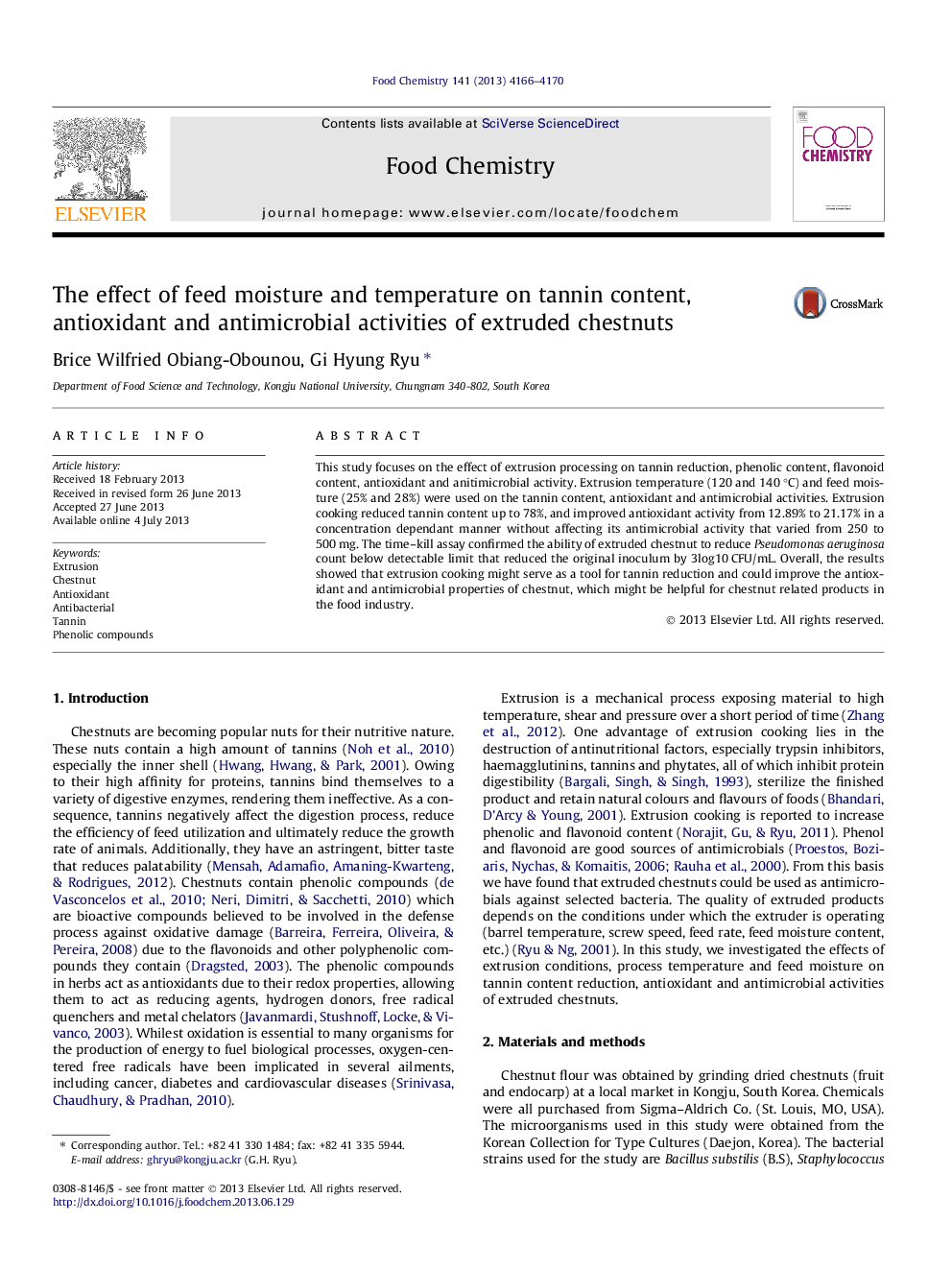| Article ID | Journal | Published Year | Pages | File Type |
|---|---|---|---|---|
| 10539899 | Food Chemistry | 2013 | 5 Pages |
Abstract
This study focuses on the effect of extrusion processing on tannin reduction, phenolic content, flavonoid content, antioxidant and anitimicrobial activity. Extrusion temperature (120 and 140 °C) and feed moisture (25% and 28%) were used on the tannin content, antioxidant and antimicrobial activities. Extrusion cooking reduced tannin content up to 78%, and improved antioxidant activity from 12.89% to 21.17% in a concentration dependant manner without affecting its antimicrobial activity that varied from 250 to 500 mg. The time-kill assay confirmed the ability of extruded chestnut to reduce Pseudomonas aeruginosa count below detectable limit that reduced the original inoculum by 3log10 CFU/mL. Overall, the results showed that extrusion cooking might serve as a tool for tannin reduction and could improve the antioxidant and antimicrobial properties of chestnut, which might be helpful for chestnut related products in the food industry.
Related Topics
Physical Sciences and Engineering
Chemistry
Analytical Chemistry
Authors
Brice Wilfried Obiang-Obounou, Gi Hyung Ryu,
